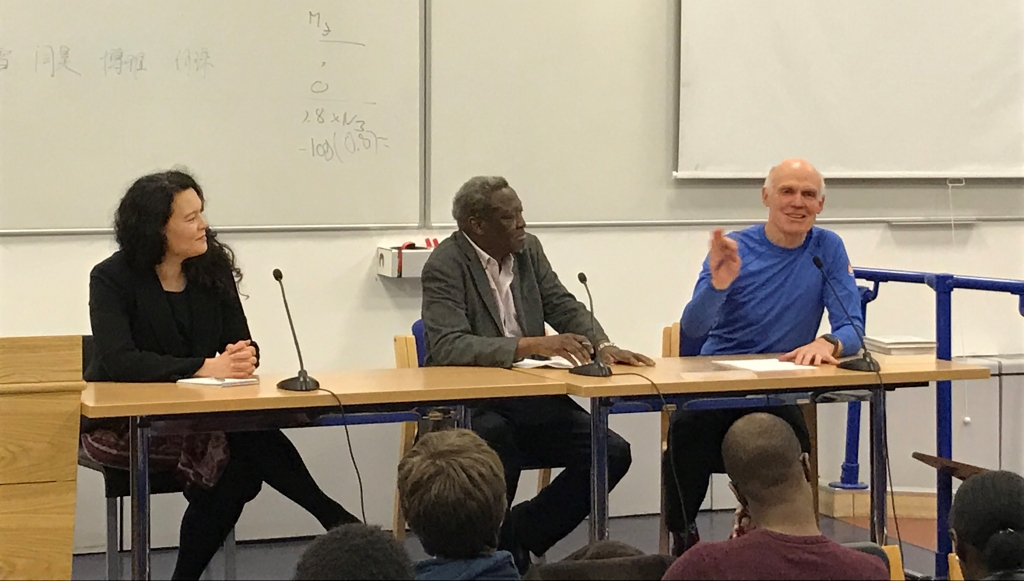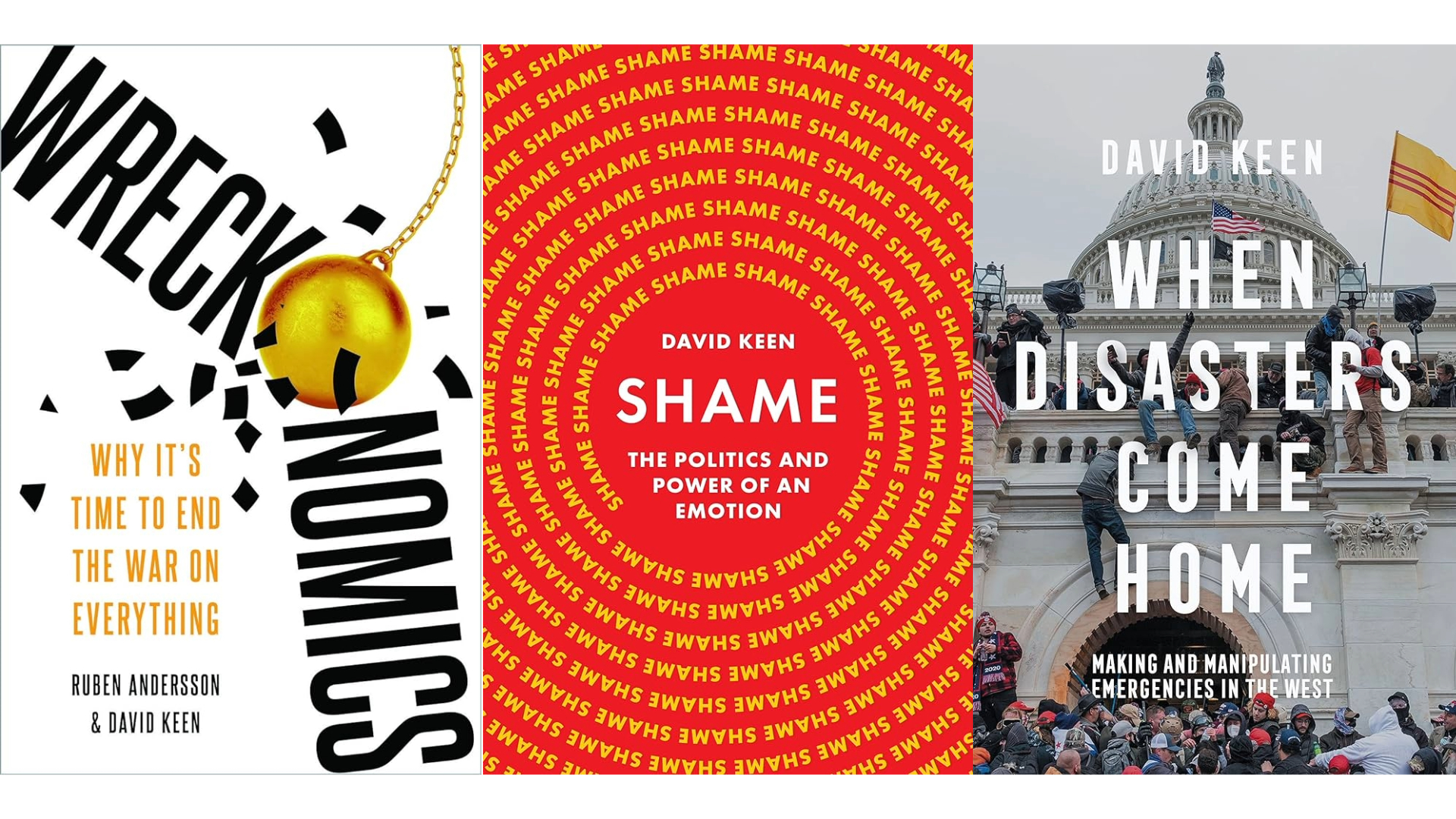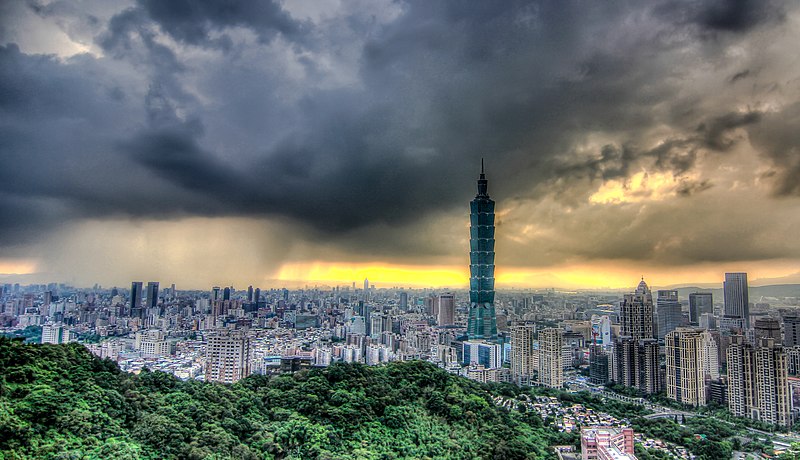Dr Geoffrey Swenson, LSE Fellow in the Department of International Development, writes on the 2016 Development Dialogue featuring Professor Robert Wade and Professor Thandika Mkandawire.
This year’s Development Dialogue addressed an important issue in international development: ‘The Future of Developmental States’. As originally conceived, the ‘developmental state’ described state-led macroeconomic planning in certain Asian states following World War II. Developmental states, in contrast to free market oriented neo-liberal states, endorsed strong state intervention in the economy, extensive market regulation, and industrial planning. Development states have achieved remarkable successes. For instance, South Korea, Singapore, and Taiwan were transformed over a course of decades from poor developing countries into economic powerhouses.

Despite some impressive past achievements, the future of the developmental state remains an open question. After all, the world has changed dramatically since the 1950s and it is unclear if the developmental state can achieve success outside of certain geographical and cultural settings. To answer the question, the development dialogue drew on the expertise of two of the world’s leading development experts: Prof. Robert Wade, Professor of Political Economy and Development at LSE, and Prof. Thandika Mkandawire, Chair in African Development at the LSE. This blog summarises the key insights of their lively discussion before a room packed with students on March 15, 2017.
While recognizing it is difficult to predict the future, Prof. Wade contended that the developmental state as occurred in Taiwan and South Korea after World War II is no longer feasible. The overwhelming dominance of Western and Japanese high technology firms makes creation of domestic capacity in developing states more challenging. Likewise, the rise of neoliberal trade and investment policies and institutions, such as the World Trade Organization, limits developing countries’ ability to protect their own infant industries. Nevertheless, he argued that the ‘developmental state 2.0’ does have a future. This new developmental state can promote development by taking advantage of room for manoeuvre within investment and trade rules to promote domestic industries, building on their existing role in the global supply chain as means to move into higher value add products, and fighting corruption. The state, whether it aspires to be development or not, has three main options with regards to fostering development. The state can lead on selecting investments in the private sector with public funds, it can choose to ratify certain market investments through additional state support, or it can abdicate its role as a developmental state and simply leave all investments to the private capital markets.
Prof. Thandika Mkandawire took a different tact. According to Mkandawire, while very real economical and governmental constraints exist, the developmental state will be a permanent fixture in Africa. This approach marked a clear rejection of the oft cited argument that cultural and institutional factors preclude effective developmental states in Africa. He stressed that African states need to learn from Asian developmental states’ successes and mistakes. This will allow African states to develop faster and more successfully. Accessible technology and reducing corruption will be vital for this transformation. A key part of this process will be working to ensure more African assets stay in Africa and are not siphoned off to rich western nations because it will both help reduce corruption and promote economic development. He drew an important distinction regarding the practical motivation of policymakers seeking to build a developmental state; namely some are seeking to get ahead, while others are fearful of falling behind. Furthermore, he contended that despite interest from both policymakers and scholars in understanding and promoting developmental states, it is often only possible to tell whether a state is developmental in retrospect.
Student questions sparked a dynamic discussion. Responding to a student question on whether developmental states need to be authoritarian, Prof. Mkandawire rejected the notion that authoritarianism is intrinsic to the developmental state. Rather authoritarianism is simply one manifestation of the state. He argued a developmental state can be fully democratic. When asked about the implications of the recent US presidential election, Prof. Wade surprised many by suggesting that the election of President Trump may actually provide for more rather than less space for developing countries to pursue policies consistent with a developmental state. His argument noted that Trump’s agenda has opened up more space for industrial policy, which has previously been taboo under the dominant neoliberal agenda.
So does the developmental state have a future? While bearing Prof. Wade’s advice about the dangers of prediction in mind, it certainly seems the old developmental state cannot be replicated wholesale. Nevertheless, states can still aid the help creation of domestic capacity and implement sensible macroeconomic policies that promote development, but they will need to continually adapt to a rapidly changing world.
A full recording of the debate is available here (LSE staff and students only).
EVENT DESCRIPTION:
15th March from 6:00-7:30pm in room TW1.G.01.
THE FUTURE OF DEVELOPMENTAL STATES
A DIALOGUE BETWEEN PROFESSORS ROBERT WADE & THANDIKA MKANDAWIRE
Two world-leading experts will discuss the future of developmental states. Since the phenomenon of state-led development in East Asia in the late 20th century gained prominence as a new approach to development, it has been both much aspired to and much questioned. Not only might the approach fail to transfer to other places with different conditions, but it might fail to transfer over time. The world has since changed much—geopolitically, technologically, in global economic balances and trade structures, and otherwise. Is the concept of the developmental state still relevant and helpful? If so, how can it be adapted and under what circumstances is it likely to succeed? Can states be trusted to take a more central role in development, and are they capable of handling it well? Or are they more likely to actually hinder development? Professors Wade and Mkandawire will discuss these questions with an eye to current development challenges in Africa and elsewhere.
PROFESSOR THANDIKA MKANDAWIRE is the former Director of the United Nations Research Institute for Social Development and the first person to take on the new position of Chair in African Development at the London School of Economics (LSE). Prof. Mkandawire was formerly Director of the Council for the Development of Social Science Research in Africa (CODESRIA), a Senior Research Fellow at the Centre for Development Research in Copenhagen and has taught at the Universities of Stockholm and Zimbabwe. He currently holds the Olof Palme Professor for Peace with the Institute for Future Studies in Stockholm.
PROFESSOR ROBERT WADE is Professor of International Development at LSE and a leading scholar of East Asian development, multilateral development organizations, and global financial relationships. He is author of _Governing the Market: Economic Theory and the Role of Government in East Asia’s Industrialization _(1990, 2003), which won the American Political Science Association’s award of Best Book in Political Economy, 1992; _Irrigation and Politics in South Korea_ (1982); and _Village
Republics: The Economic Conditions of Collective Action in India_ (1988, 1994). Prof. Wade has previously held positions and fellowships at the Institute of Development Studies, Sussex, 1972-95, World Bank, 1984-88, Princeton Woodrow Wilson School 1989/90, MIT Sloan School 1992, Brown University 1996-2000. The Institute for Advanced Study, Princeton 1992/93, Russell Sage Foundation 1997/98, Institute for Advanced Study, and Berlin 2000/01.
Dr. Geoffrey Swenson is a Fellow with the Department of International where he teaches on the development management course. He completed his DPhil in International Relations at Oxford University on post-conflict judicial state-building in legally pluralist settings. He has also actively designed, managed, and evaluated international rule of law programs on the ground in Afghanistan, Bangladesh, Indonesia, Namibia, and Nepal.
The views expressed in this post are those of the author and in no way reflect those of the International Development LSE blog or the London School of Economics and Political Science.





